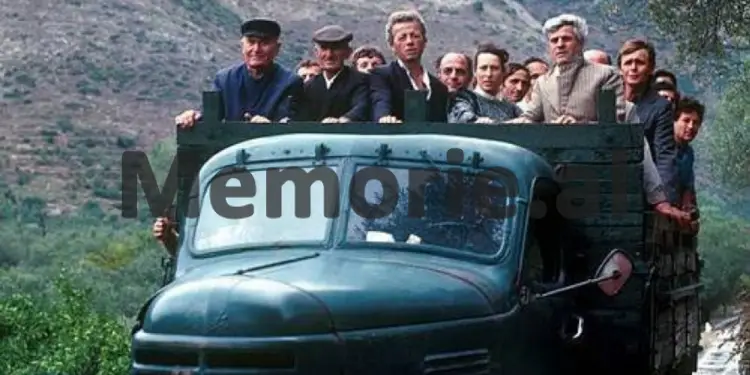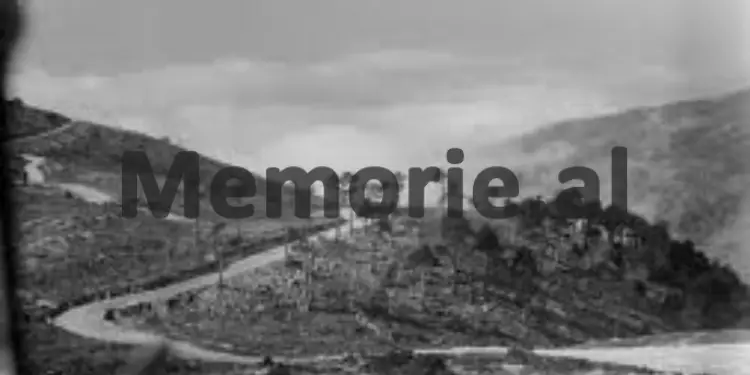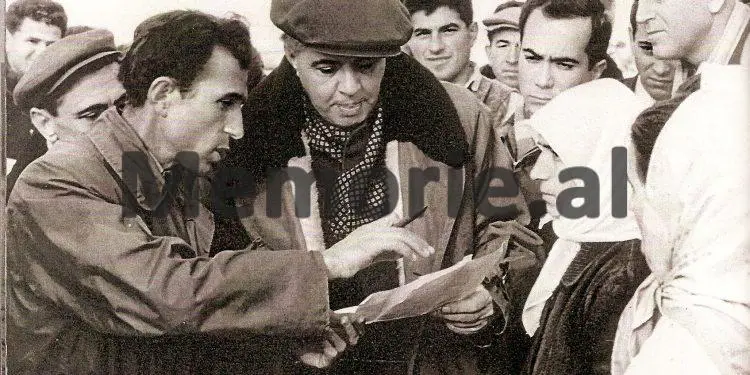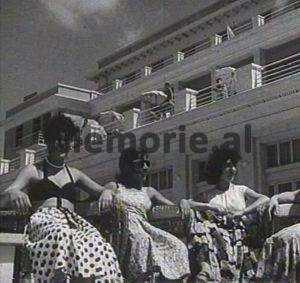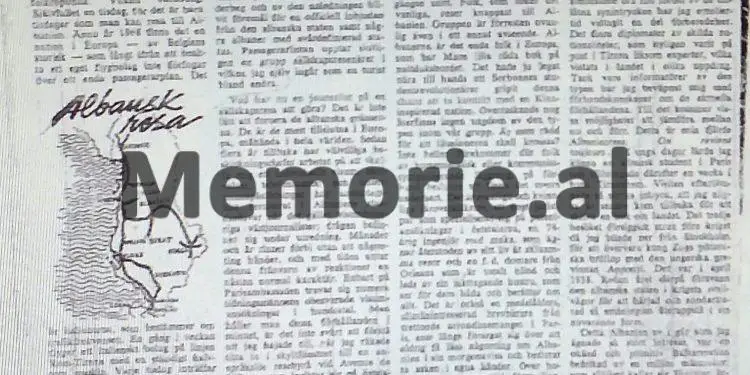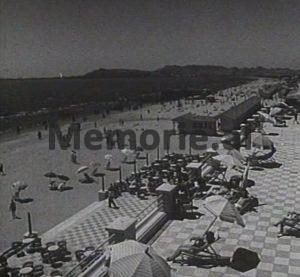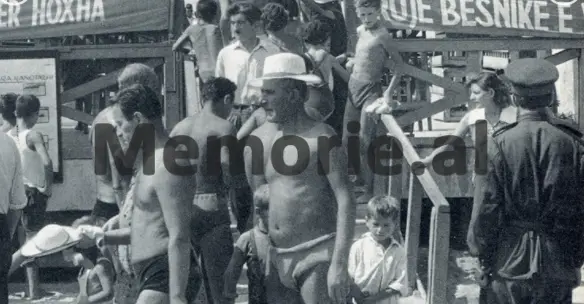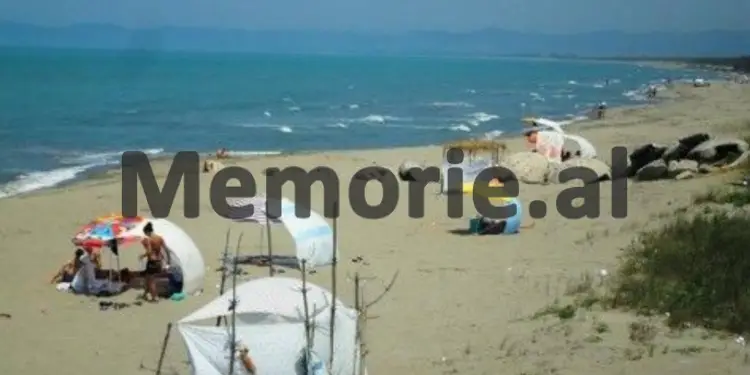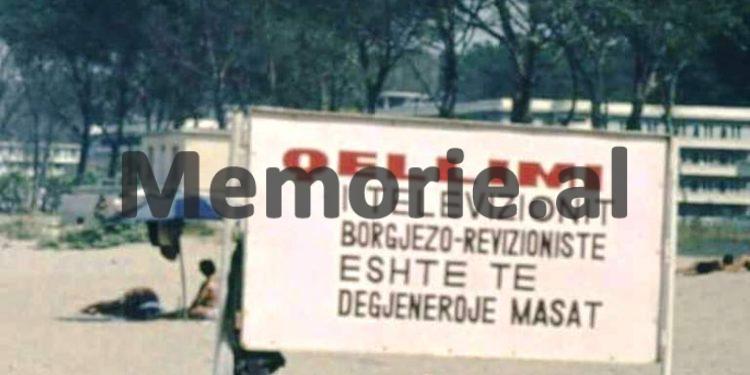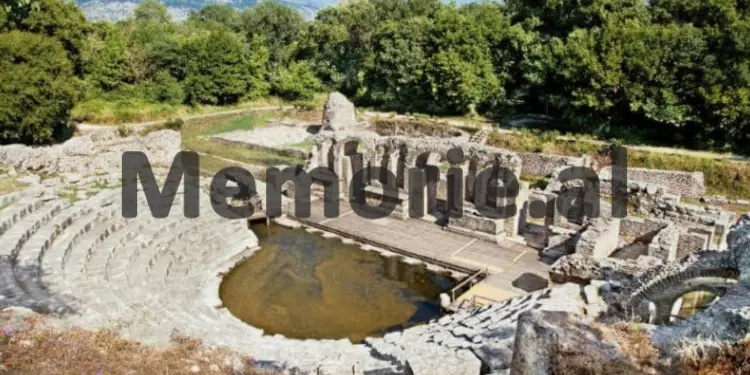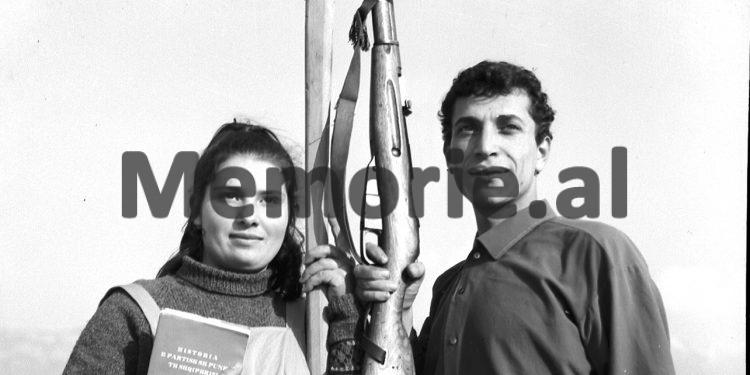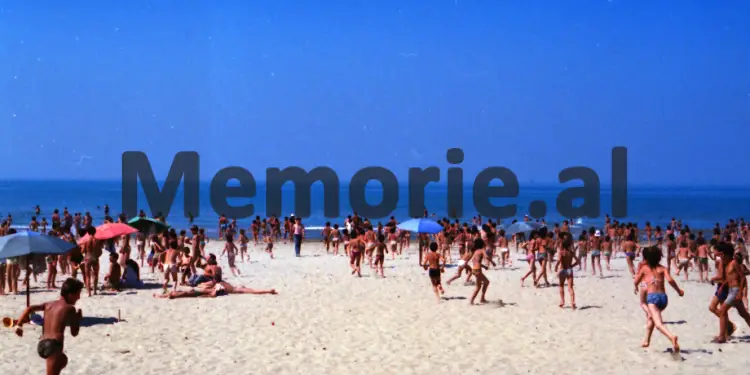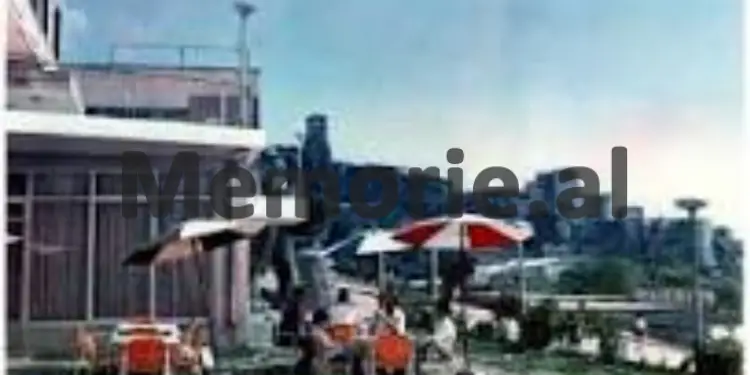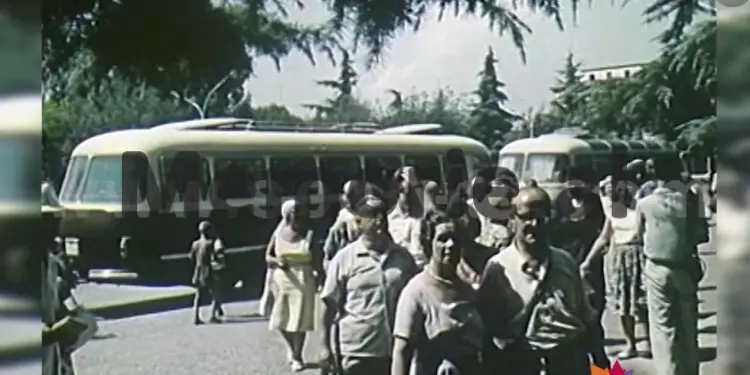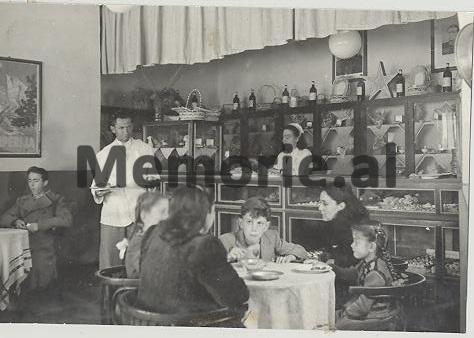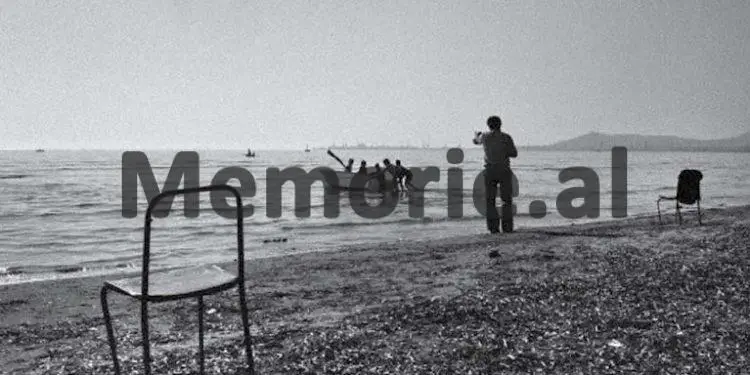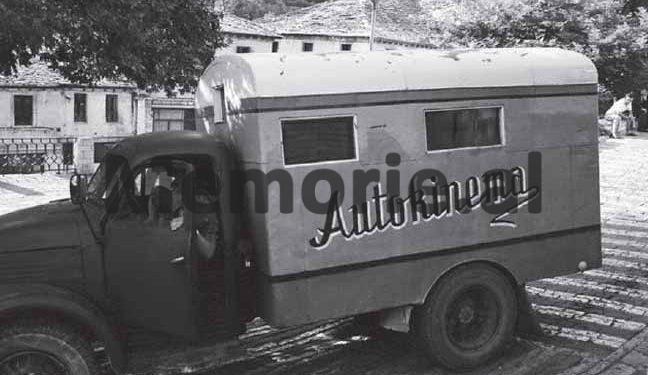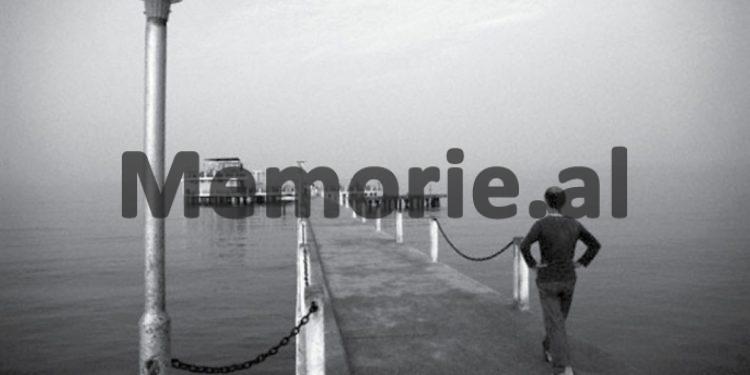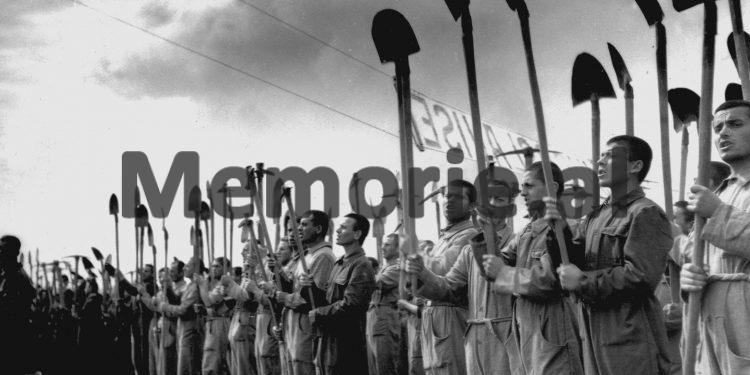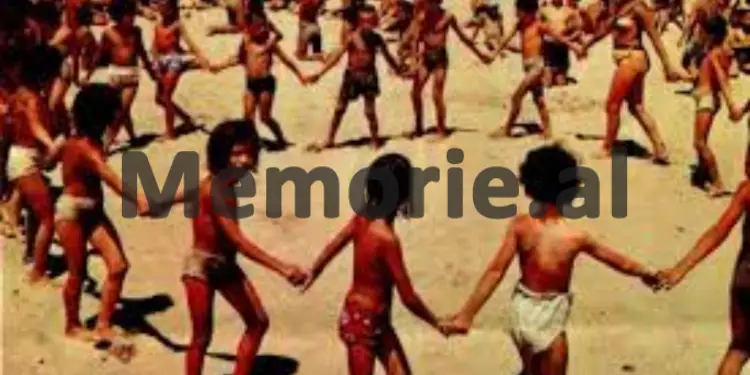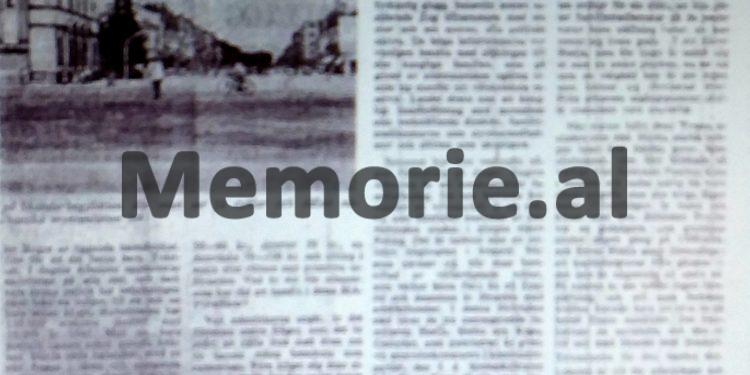Memorie.al publishes a report by the well-known Swedish journalist, Sven Aurén, published in the newspaper “Svenska Dagbladet” of Stockholm regarding his four visits to Albania, starting from 1938 when he came for the wedding of King Zog and for him completed in September 1968 where he last visited Albania, after several years of vicissitudes to obtain a visa at the Albanian embassy in Paris where he camouflaged himself as a tourist. “Albania is a unique country in the world without gas stations, people travel in truck bodies, while outside the cities with mules, the favorite food is sour cream, where in Kruja there is a 500-year historical heritage since the time of Skanderbeg, no one works their land, because no have, Durrës beach with 5 km. coastline gift of Enver Hoxha for the diligent clerks and skilled workers… ”.
Continued from the previous issue
Translated by Adil Bicaku, Stockholm
Albania in September 1968
TOURIST IN ALBANIA
Thinking in the series of past articles it may seem incomprehensible, that I persistently ask friends and acquaintances to make a tourist trip to Albania, if this is possible through any of those small group trips, which also start why rarely, and not regularly and with very few participants, from Paris to Tirana. In the first place, of course, such an expedition I recommend to students, to refresh their minds that they are worried about what is called Maoism. In Albania they can do interesting studies in terms of what Chinese communism looks like when practiced on a European people. But even for those who do not need medicine against revolutionary romanticism, this is a trip of great interest, to enable contact with a small, forgotten, strange place but a place of magnificent beauty, not far from the very trafficked streets. Besides, a trip to Albania is less difficult than before. When I traveled by car before the War there were few gas stations, and you had to be careful not to pass them without seeing them. Now there really is no gas station, which is unique in Europe, but since the tourist is not allowed to move individually, it does not matter. You are obliged to go in a group, and with the bus that “Albturist” makes available. This bus is supplied in certain state places where the driver submits an official document.
It seems to you that the country is at war. In terms of roads they have become better. Albania produces a lot of asphalt, which is also exported, in Paris there are roads, which are paved with Albanian asphalt, but in the thirties, there was nothing left for internal use. Roads and sidewalks boasted all the potholes, bumps and sinks that were typical of the Balkans, and the car shook like a compressor turret. With the exception of the coastal road between Vlora and Saranda, the main roads are already maintained and paved with asphalt. But the one who takes the road from Vlora to Saranda must have his nerves under control. The road runs through a steep ridge on a primitive serpentine, which was built by the Austrians during World War I and has not undergone any change since. It is as narrow as a country road, curves like a hairpin, strange angles protruding above the dizzying cliffs, and it is an enigma of how drivers drive heavy vehicles during these twists and turns without falling into the sea. Sometimes you come across big trucks of Russian brands and of course this is more and more dangerous. They bounce back and maneuver to the millimeter. To forget the tumult in the abdomen and to avoid looking down into the abyss, you seek to see the eagle.
The eagle is the proud bird of Albania, which they rediscover in its red flag. Sometimes a magnificent specimen stands quite quietly as if hung by a thread from the clouds above. When he lowers his eyes again the truck has passed, the passengers applaud their capable driver and a gentleman from Paris explodes in a strange voice: “We escaped this time too!” But the experience of this kind is limited as I said those ten miles between two coastal towns in the south. But also, in general of course the trip around Albania is a trip over massive mountains and through serpentines because the country has this feature. But on good roads, and with walls at turning angles you do not feel anxious. The journey is easier because there is less traffic. It happens that he travels alone as a king, tens and tens of kilometers.
In no case have I seen a car in the villages, those rare specimens that I could see, I have seen in the cities. Out-of-town traffic is carried by loaded mules, buses and, above all, trucks, which are often used to transport people. Occasionally you encounter large trucks crowded with men and women, who stand on tight legs in the carriage. A red flag flies at the top of the driver’s cab. Are working brigades on the street or from the cooperative. There is no longer any private land in Albania. Not even a square meter. That is why you never see anyone working their own land, which gives you a terrible impression as Euro-western! Always work in groups. The comparison may be unfair, but that does not help the mind to go to prisoners and convicts with forced labor.
Although the trip to Albania implies a series of difficulties but still the tourist is compensated by abundant impressions of natural beauties. The scenery is splendid. The brave Lord Byron (Byron), who traveled to this country at the beginning of the last century, was extremely impressed by its frantic adventurous character. “Land of Albania Let me bend my eyes on thee, thou rugged nurse of savage men!” Albania, let me turn my eyes away from you, you suffering mother of Asgan men. (man. trans.) Man experiences an amazing greatness. The mountain ranges are fantastic and the scenery breathtaking. The gorges look like deep wells guarded by giants, who are the cliffs. And one believes that one understands why Albanians have been able to retain their characteristic features even though they have almost always lived under foreign rule: a mountainous country like this can never be completely defeated. The man is also rewarded after this anxious journey from Vlora to Saranda. A new road leads to Butrint, the Buthrotum of antiquity, of which Virgil speaks, the famous Roman poet Vergelius in the 19th century p.e.r. wrote the epitaph himself: Mantua gave me life Calabria took me (transl.) in the work Eneida and where Racini Racine the greatest writer of French classical drama 1699 (transl.) chooses for the scene of the work “Andromache”.
Hundreds of years before Christ this city constituted one of the most famous centers of trade and culture of Epirus. Gradually it became a Roman colony and then fell under Byzantine rule and then under Venice then taken over by the Turks. In the 1700s the city was abandoned and later turned into the jungle, which covered it completely. Between the two world wars, Italian archaeologist Ugolini took Butrint ten years to rediscover it and did not stop digging until 1939. It was hard work: it was very difficult to cope with the bushes and vegetation. frequent, swampy land required complicated drying and malaria posed an unstoppable threat. When World War II broke out only a small piece was discovered.
When you walk around in this rediscovered city, you immediately think: if all that has been discovered is only a small part, then what will there be no more to discover! Even from the cultural-historical point of view, the aggressive isolation of Albania is a tragedy. What is required is an investment in archeology of completely different dimensions that Albanians themselves cannot make. From now on I admire a magnificent amphitheater in white marble from the fourth century BC, a temple of Esclepius, the Byzantine baptistery with pillars sculpted on delightful mosaic floors, very well-maintained Roman baths … Those discovered pieces stretch out like a lot of space small in this hot humid jungle where we walk forward through the trails and see strange rolling, testifying to the walls and the house under the great vegetation. In an old castle, located above the town where Ugolini enlarged and furnished it as an apartment, they also opened a museum with the discovered things: beautiful portrait sculptures, weapons, household furniture and decorative objects. Italian experts explain that this is only a small illusion about the possibilities that Butrinti has. A young Albanian archaeologist who has studied in Moscow and works as a tour guide here says he is of the same opinion. But he will not explain anything about the excavation program in the future. But on the contrary, he emphasizes what Albania calls “Ugolin great crime”. Among the many sculptures the Italian scientist found an extremely beautiful head, which is not known for sure whether it parks a boy or a girl. It is made with a masterpiece, reminiscent of Praxiteles. In the late 1930s he sent it to Rome, and then it was rumored that Zog gave it to Italy as a token of gratitude for the excavations. “He stole our most beautiful sculpture”, say today’s Albanian gentlemen. Their grief is understandable. The place has two precious treasures: the head from Butrint and the helmet of Skanderbeg. None are in Albania. The head is in a museum in Rome and the helmets in a museum in Vienna.
Those who travel to Albania do not have to worry about food. In this respect there is an improvement when comparing it with before when restaurants did not meet even the most minimal hygiene requirements.
Is it hard to say where they learned, perhaps the Italians, were their teachers? But Albanian chefs already possess astonishing skills in their profession. Everywhere I went during this trip they served very well-cooked dishes, which have been much better than many Western European countries could offer in simple similar venues. Albanian cuisine, among other things, is especially proud of the dish: which in the language of the country is called yoghurt, an extraordinary yoghurt that even Bulgarians cannot approach. It is prepared according to traditional methods, if the waiters are trusted, there should be areas where yogurt, taken a little by the old to catch the young, still continues from ancient times. In Kruja, the castle town from where Skanderbeg fought the Turks so successfully 450 years ago as if they must have had historical yoghurt, i.e. traces can be traced back in generations of heritage, from the days of the national hero. Whether it is false or true, the fact remains, thanks to the yogurt that we can talk about an Albanian gastronomy, and in addition the food standard is surprisingly good.
In terms of hotels there is a convincing improvement. When I left Tirana, in the thirties, other cities, there were only Balkan inns: scary stairs and bad rooms where even the sheets looked historic, in the sense that they too seemed to belong to Skanderbeg’s time without being washed since. The man was armed with a saintly patience. The worst were the cockroaches that at that time constituted special suffering in Albanian hotels. He also added the sanitary side. ….. It was all about patience, which could put even the most seasoned tourist in a deep state of sadness. Here both have happened. Many new hotels have been set up. Based on the previous situation they can be considered acceptable. They of course never have elevators, because elevators have to be imported. It also happens that eight visitors have only one toilet and the cleanliness is unfortunate. But the rooms are clean. As for the cockroaches, they probably emigrated to another popular democracy or got drunk before we came, it was said later, that the rooms were disinfected shortly before we arrived, but none of the participants in the trip had any trouble with it. kind.
You cannot talk about hotels without adding a few words about the Adriatic Hotel in Durres and not only because it is the pride of “Albturist” but also because the atmosphere and circumstances reflect the whole of Albania. Durrës is an important coastal city, which before the state closed the window and lowered the curtain, had a heavy sea traffic with Dubrovnik, Bar, Venice and other Adriatic ports. The steamers are already coming from China. But Durrës is also a gift from Enver Hoxha to the people: a wide beach where the five long kilometers of the coast are used by diligent employees and skilled workers, who receive as a reward two weeks of rest in it.
In the middle of the Adriatic coast has erected its impressive walls. The rooms are excellent, although the building does not benefit from running water in the true sense, but the water must come with a tanker and pump to fill the tank on the roof, it offers a great luxury given the Albanian circumstances. The bar is very large and solemn as an old-time dance hall, canteen as well. White-robed waiters and bunny-haired waitresses, without a smile but with great effectiveness serve the capitalists and revisionists.
The Adriatic is actually reserved for foreigners, which means a minority of tourists from Western Europe, to a trade delegation from Yugoslavia and Romania, two particularly dubious nations from the Albanian point of view, as well as staff of the diplomatic corps, who come from Tirana for several days as an attempt to forget the murderous boredom in the capital. From the entrance of the hotel to the water’s edge is a narrow and forbidden area where only guests stay, and from where you can see beautiful colored swimwear, sleek sun umbrellas and varied rubber mattresses. On both sides of this reserve he rediscovers the Albanian beach public. Occasionally they flow to the extent reminiscent of the Ganges *, a river in India 2,700 km. long flows from the Himalayas and flows into the Bay of Bengal. Holy (healer) according to the Hindu faith. (translator note).
It is a pathetic beach public without bathing equipment, cameras or radio transistors, they do not have sun umbrellas but they tie sheets to four sticks and they are in swimsuits that they have sewn themselves. This is an embarrassing division. You look like in a Pravda cartoon where the capitalist is sitting in the reserved area under a beautiful sun umbrella, trying to find Italian news stations with a transistor radio. A little further the beach is blocked by police, who guard a group of villas which the owners of power use for their weekends. Like all communist countries, Albania is a class society. Inside the sea, Chinese steamers wait for a place on the scaffolding, and when it gets dark, they turn on the lights and look very decorative. Meanwhile the Adriatic directorate begins the permanent preparation of dinner entertainment. They show propaganda film on the big terrace. Yesterday we enjoyed the excavators, which attacked a future construction site, and trucks, which transported gravel while a French commentator spoke about the energy and will of Albanian progress.
Tonight, it is known that a new building will start to be erected before our eyes./Memorie.al



